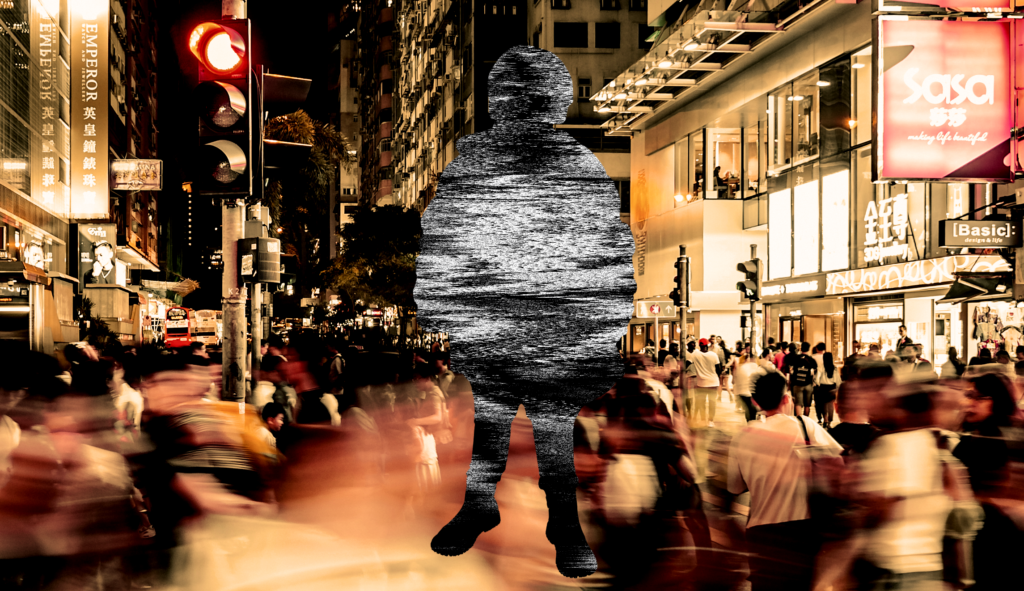What is the plot of Expats, Amazon’s flawed but intriguing new Hong Kong-set limited series? It depends on whom you ask. For the NPR crowd, the show plumbs the “lived experiences” of wealthy foreigners and their servants, meanwhile considering how “feminism [can] undermine issues of race and class,” as creator Lulu Wang recently told the broadcaster. For viewers less soaked in ideology, the program is simpler. It is an examination of grief. A domestic catastrophe has united three women in suffering, and our business is to see whether they emerge.
That both answers are strictly correct does much to explain the series’s strange unevenness. Sensitively cast and shot, Expats nevertheless can’t decide where its true aim lies. Take, for example, the lead character of Margaret Woo, an anguished housewife played, with characteristic skill, by Nicole Kidman. For long stretches, our protagonist is an avatar of clueless “whiteness,” badgering her Filipina maid even as she insists that the older woman is “family.” Yet Margaret is also, indisputably, a tragic heroine. A better show might have embraced this complexity, suggesting, for instance, that bereavement limits our ability to see others clearly. Expats merely toggles between its two realities, like a bored chauffeur shifting gears. A representative of her “type,” Kidman’s character is an egoist and a mild racist. Unrelatedly, she is also a human being who has been through hell.

If I am being coy about what that hell actually is, I am only following the show’s lead. For its first hour and a half, Expats is content to drop hints about the calamity at its center. Planning her husband’s birthday party, Margaret recoils from even mildly personal questions on the part of an assistant. A friend of the couple asks aloud why they refuse to “just go home.” Slowly, over the course of two episodes, the series fills in the blanks. Perhaps a year before the action opens, the pair’s 3-year-old son, Gus, was kidnapped from a bustling night market. Despite the efforts of police, the boy was never found.
To say that this plot point overwhelms the show’s political commentary is like saying the loss of a child is “rather unpleasant.” The understatement borders on the ridiculous. Expats could have been, had Wang so chosen, a drama of manners about privileged life abroad. But it cannot simultaneously be a searing — indeed, a nightmarish — drama of child-endangerment. The latter so overpowers the former that its hollowness is exposed at once.
I wrote earlier that a trio of women suffer as a result of Gus’s disappearance. The three characters in question are his mother, a neighbor, and a prospective au pair, figures who illustrate different categories of expatriate experience even as they advance the story. As Margaret’s friend and building-mate, Hilary Starr (Sarayu Rao) must lend emotional support despite her own troubled marriage and complicated childlessness. A chance acquaintance turned potential employee, Mercy Cho (Ji-young Yoo) is as responsible as anyone for the loss of Gus but must, as an ethnic Korean in Hong Kong, navigate more than her guilt.

All three of these performers are superb. So are the supporting players who give Expats additional texture. Yet even if the show were to pull off its brash dramatic hybridity, one might reasonably question the fairness of its ideals. Case in point: the character of Mercy, who receives careful framing as an ethnic fish out of water despite Cantonese Hong Kongers’ regularly taking her for one of their own. Though Mercy’s speech gives her away, Margaret is foreign at a glance. The difference is that Kidman’s character is villain-coded by the color of her skin. It doesn’t occur to Expats to consider her discomfort as an American living in China.
And what of the servant class, to which Wang gives not only steady attention but an entire episode near the end of the show’s run? Here, too, the politics lean toward the juvenile. Though we feel for the Starrs’ driver, forced into conversational intimacy with Hilary’s narcissistic husband, other “helpers” deserve the treatment they receive. Margaret’s maid, Essie (Ruby Ruiz), for example, really does cross “boundaries” with the family’s remaining children. Is it bigoted to ask her not to snuggle into a preadolescent’s bed? Wang and company plainly think so.
CLICK HERE TO READ MORE FROM THE WASHINGTON EXAMINER
These blemishes are not insignificant. And yet, Expats is a difficult series to shake. A triumph of naturalistic acting, the program feels exceptionally real — no small thing given its melodramatic stakes. Filmed mostly on location, it makes better use of its setting than any TV show in recent memory, from the heights of Victoria Peak to the glittering stalls of the Fa Yuen Street market. There is, as well, the simple fact that Wang knows what she’s doing behind a camera and in the editing bay. Returning, at episode two’s end, to the scene of Gus’s disappearance, Wang shows us the next day at the market: first empty, then crowded, then swarming. Life goes on, the shot quietly implies. What other choice does it have?
Perhaps the best way to describe Expats is to say that it reminded me of HBO’s Industry, a show I scorned in these pages, then revisited, then came to love. Both programs are hyperspecific, not so much explaining their worlds as pulling the viewer in face-first. Both surround established actors with perfectly chosen newcomers. Most importantly, both are interesting enough to transcend, at the best of times, their ideological assumptions. For those wishing to understand the phenomenon known as “peak TV,” I can’t think of a better definition.
Graham Hillard is a Washington Examiner magazine contributing writer and editor at the James G. Martin Center for Academic Renewal.
